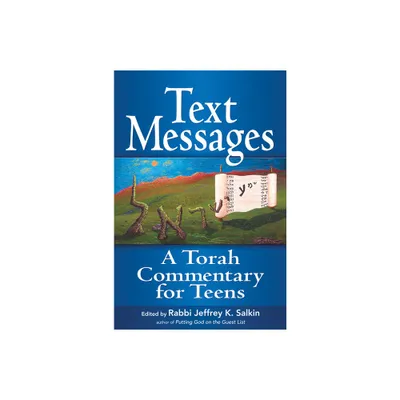Home
Text Messaging and Literacy - The Evidence
Loading Inventory...
Barnes and Noble
Text Messaging and Literacy - The Evidence
Current price: $180.00


Barnes and Noble
Text Messaging and Literacy - The Evidence
Current price: $180.00
Loading Inventory...
Size: Hardcover
*Product Information may vary - to confirm product availability, pricing, and additional information please contact Barnes and Noble
"Well thought out and timely. This is the leading group in the world working on texting and literacy, and they have a strong track record of publications. It would also be the first book, as they say, to deal with the subject at an academic level. The focus on education is important, as this is where most of the anxieties lie. It will be a major step forward in creating a new climate."
Professor David Crystal, author of The Cambridge Encyclopaedia of Language and The Cambridge Encyclopaedia of the English Language, Television consultant and presenter
As children are given mobile phones at increasingly younger ages, there is considerable media coverage of claims that mobile phones, and text messaging in particular, are responsible for declining levels of literacy in children and young people. Such claims are often adopted wholesale by teachers and parents, despite the fact that there is an empirical literature which has failed to find a basis to these claims, and to the contrary has found that text messaging is supporting children's literacy skills.
Written by leading international researchers
Text Messaging and Literacy
presents an overview and discussion of the academic evidence for and against use of text messaging and mobile phones in supporting literate activity and discusses what conclusions we can and should draw about the impact of mobile phones, and their potential role in education.
Areas covered include:
the rise of texting and media reactions;
children's reading, spelling and texting;
text messaging of children with language difficulties;
using mobile phones for literacy development;
texting and literacy skills in adolescents and adults;
spelling and grammar in texting and beyond;
the future of texting.
In challenging existing assumptions the authors present the cutting edge of international research, highlighting their own studies involving children of all ages, adolescents and adults. This ground breaking book is essential reading for both researchers and students in education, educational psychology, literacy and new media and it's impact on learning.
Professor David Crystal, author of The Cambridge Encyclopaedia of Language and The Cambridge Encyclopaedia of the English Language, Television consultant and presenter
As children are given mobile phones at increasingly younger ages, there is considerable media coverage of claims that mobile phones, and text messaging in particular, are responsible for declining levels of literacy in children and young people. Such claims are often adopted wholesale by teachers and parents, despite the fact that there is an empirical literature which has failed to find a basis to these claims, and to the contrary has found that text messaging is supporting children's literacy skills.
Written by leading international researchers
Text Messaging and Literacy
presents an overview and discussion of the academic evidence for and against use of text messaging and mobile phones in supporting literate activity and discusses what conclusions we can and should draw about the impact of mobile phones, and their potential role in education.
Areas covered include:
the rise of texting and media reactions;
children's reading, spelling and texting;
text messaging of children with language difficulties;
using mobile phones for literacy development;
texting and literacy skills in adolescents and adults;
spelling and grammar in texting and beyond;
the future of texting.
In challenging existing assumptions the authors present the cutting edge of international research, highlighting their own studies involving children of all ages, adolescents and adults. This ground breaking book is essential reading for both researchers and students in education, educational psychology, literacy and new media and it's impact on learning.


















